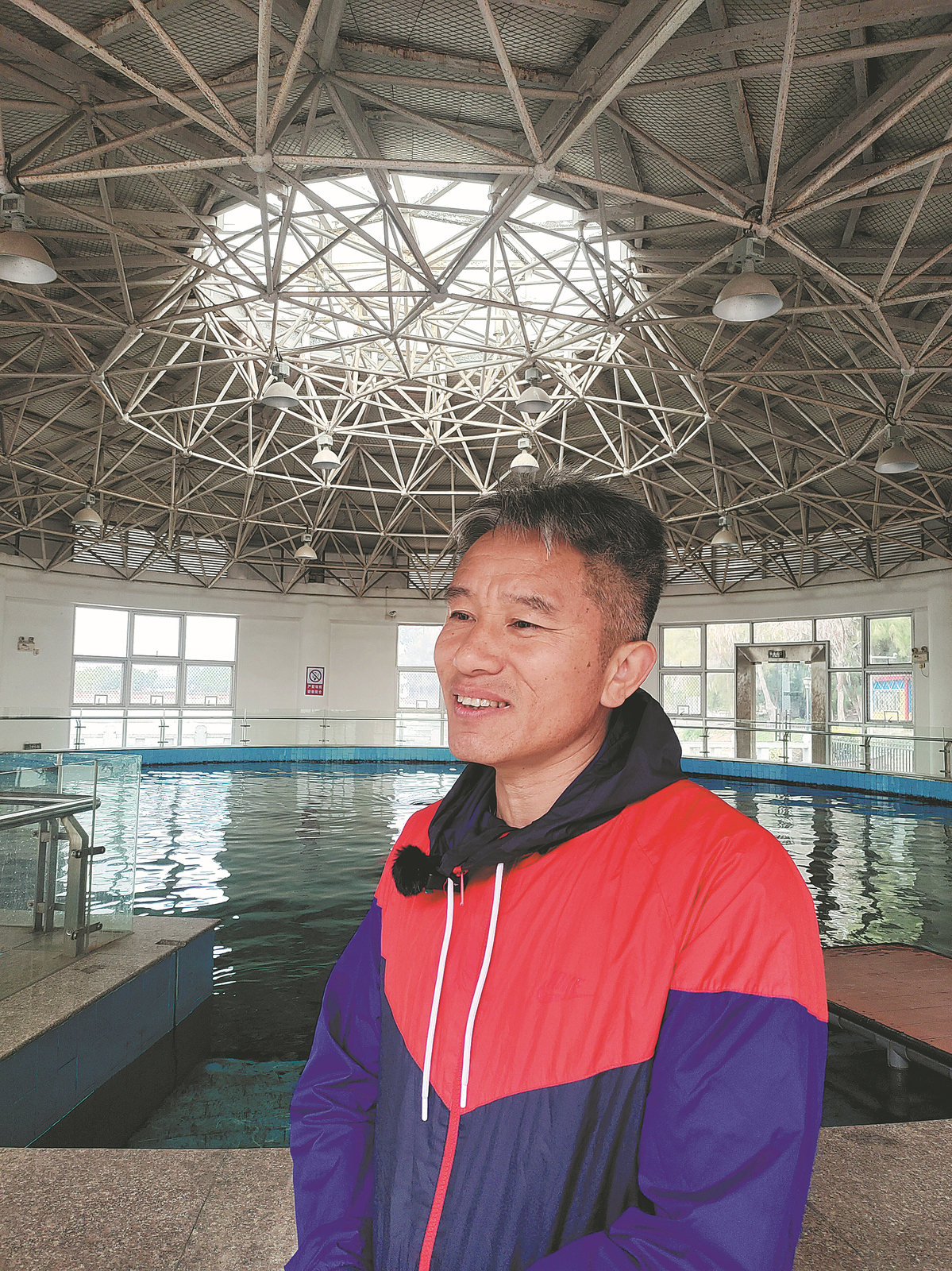Former navy veteran turns conservationist


After more than a decade of hard work at China's inaugural rescue and breeding base for the Chinese white dolphin, a former navy veteran has been transformed into a conservationist.
With practical knowledge in marine ecology conservation firmly grasped in hand, Zhou Qing has garnered widespread recognition for his voluntary work on marine animal protection.
Zhou served 19 years in a naval unit in the coastal city of Xiamen, Fujian province, before taking a new direction working on marine resources and later being made responsible for the newly established Chinese White Dolphin Rescue and Breeding Base.
Established on Xiamen's largest uninhabited island — Huoshaoyu Island — in 2011, the base was set up for the protection of rare marine animals, especially the Chinese white dolphin. The dolphin, also known as the Indo-Pacific humpback dolphin, is a first-class State protected species in China.
"When I was a soldier, I was positioned at the forefront of coastal defense. While on duty, facing the sea with a rifle in hand, I often saw pods of dolphins frolicking. I was unaware at that time that they were indeed dolphins," Zhou said.
Thanks to his previous service life, Zhou is accustomed to feelings of isolation on the island. Boarding a boat headed for the base at 8:30 am, he spends eight hours every day working on the island, fulfilling tasks such as cleaning, maritime patrols, animal rescue and coastal engineering supervision.
Although knowing little about the species at the beginning, Zhou was lucky to be involved in the rescue work of a stranded Chinese white dolphin in 2013.
One morning, the base received a phone call from a fisherman alerting them to a dolphin trapped in a discarded fishing net on a beach near Xiaodeng Island. Despite uncertainty about the species, the base organized rescue work, giving instructions to a local rescue team through phone calls while en route to the site. After removing the fishing net, the dolphin was transported to a nearby fish farm, where experts were called in for consultations.
Zhou said the Chinese white dolphin was in a poor condition, with its skin taking on a grayish-white tone. Sadly, despite 10 days of treatment, the dolphin passed away.
"Stranded dolphins are challenging to treat on most occasions," he said, adding that a postmortem examination revealed internal pathological changes.
Zhou considers this experience invaluable, as it ignited a passion for learning new skills in his new career and provided crucial insights for the treatment and conservation of rare marine animals.
Because of the rarity of the Chinese white dolphin, the dolphins rehabilitating at the base are bottle-nose dolphins, which share similar living habits and breeding features with Chinese white dolphins.
Due to their need for good water quality, he regularly cleans the 5-meter-deep pool at the base.
In 2016, Typhoon Meranti hit Xiamen, causing power lines to snap and resulting in a power outage on the island. Given the sweltering heat, it was imperative to refrigerate the dolphin feed to prevent it from spoiling. Zhou coordinated off-island boats to deliver diesel for a generator on the island, but the low tide prevented the boats from docking. He took the lead by jumping into the water and used rafts to transport the barrels of diesel to the island one by one.
He takes every marine patrol seriously and once detected a lone dolphin using binoculars just before work began on a nearby offshore project. The dolphin, which was subsequently moved away from the area, had failed to be deterred by the protective sound wave and remained in the construction zone.
In his spare time, Zhou has established two volunteer teams, coordinating beach cleanup initiatives and providing educational sessions on the ecological, scientific and cultural significance of the species.
At the Chinese white dolphin protection day event in May last year, Zhou and other experts showcased the complete process of how they rescue dolphins. More than 40 families participated in the trial activity of caring for these animals.
"I will devote all my energy to conservation, and my public welfare work will be with me for the rest of my life," Zhou said.
Li Hongyang contributed to this story.
- Drone captures rare moment: Porpoises frolic at sea
- China sets up comprehensive environmental judicial system
- China concludes 232,000 first-instance environment, resources cases in 2023
- May temperatures rise across China
- Zhangwu turns desert into pine forests
- Region plagued by sandstorms becomes key in desertification fight


































